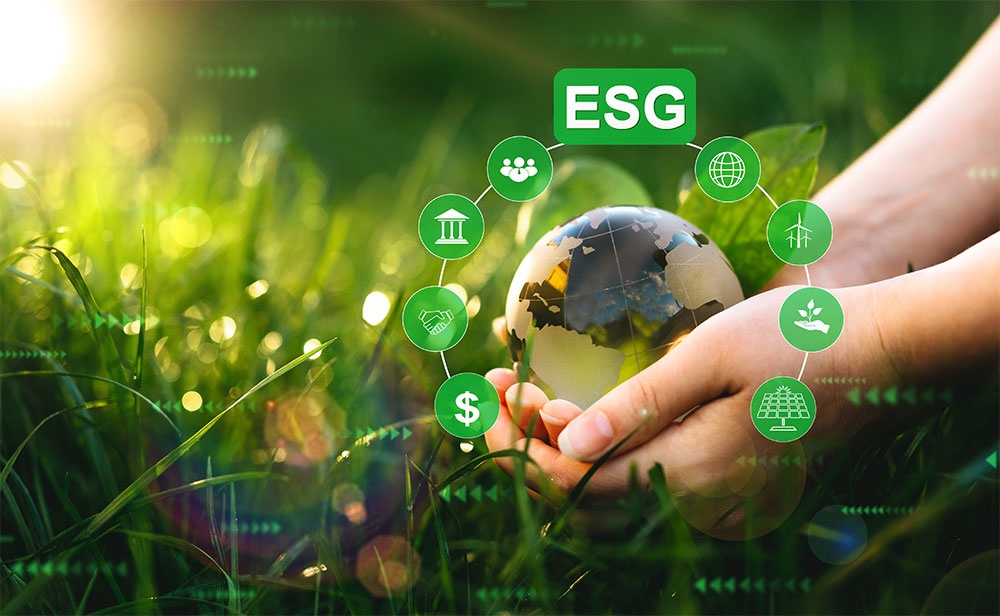ESG enabling real estate businesses to attain funds
Experts anticipate real estate investment activity to increase in the second half of 2023. To accomplish this, developers and investors need to grasp the current real estate trends in the world, and environmental, social, and governance (ESG) criteria are one of the most significant.
 |
| Le Khanh Lam - Chairman, RSM |
ESG investment is quickly becoming a key distinction in the real estate sector. The concept establishes clear environmental standards in the real estate market by using indicators that are tied to the success of businesses.
Environmental elements encompass an organisation’s influence on the environment, such as the amount of energy consumed, the level of carbon emissions, waste management, climate impact, and resources. Social factors concentrate on labour rights, workplace, health and safety of employees, and impacts on the community, while governance factors affect matters such as board structure and composition, executive compensation, business ethics, and shareholder rights.
ESG initiatives improve risk identification and assessment across investment decision-making and strategy development. Asset managers and investors are giving this criterion more and more weight. It is anticipated that ESG would continue to be promoted in tandem with market growth in the coming time, particularly in the investment strategies of tenants in office and industrial zones.
Why focus on ESG?
The adoption of ESG as a method of managing potential risks is on the rise. For some additional upfront expenditures, it allows for substantial operational savings throughout the lifetime of an investment. For instance, an investment in energy efficiency might be a viable solution. A third of all worldwide greenhouse gas emissions and as much as 40 per cent of global energy use come from commercial and residential properties.
Hence, smart property investors may enhance their capability to mitigate the risks related to climate change by implementing well-developed ESG initiatives.
In this highly competitive market, investing preferences are going to be crucial. Millennials are expected to become the dominant generation over the next several years, and they have placed a greater emphasis on concerns of social responsibility and climate change than previous generations. In order to attract that capital, real estate enterprises must have ESG policies and processes in place.
The good karma generated by a proactive strategy is another advantage, although one that may be less obvious. Being able to engage with the community and prove the positive influences of business policy may be beneficial in the long run and in a sustainable way.
Real estate companies need to focus on understanding the factors of the ESG that are material to them and that are likely to impact the financial condition or operating performance of the company, as well as what matters to their investors. The majority of real estate businesses still primarily focus on the environmental factor of ESG. Nevertheless, when seen from the perspective of the social pillar, businesses also need to consider health and safety, as well as working conditions.
Property firms can establish community-impacting initiatives in their projects, such as green spaces, parks, libraries, and childcare facilities for staff. In addition, from a governance standpoint, ethics and risk management are viewed with a critical eye. The fundamental principles of management and corporate ethics must be upheld.
As reducing the carbon footprints is becoming more and more of a priority, evaluating the materials being used will play a significant role in the development and construction process. For instance, the economy is looking at how to make more efficient use of energy, focusing less on carbon fuels and more on electricity.
There are various solutions out there, and businesses should find the appropriate one to apply, depending on the specific market, location and what they are doing with the property.
 |
| ESG enabling real estate businesses to attain funds, illustration photo/ Source: Shutterstock |
Growth and challenges
In terms of ESG legislation, standards, and investor preferences, most would agree that Europe is the frontrunner in the world. For instance, Great Portland Estates, a real estate investment trust established in the United Kingdom, has recently published an ESG credit policy.
While the ecological urban concept originally arose in Europe, Japan is also one of the pioneering nations in Asia for the development of ecological urban models. One great example of this is the Fujisawa Urban Area. Also, China has Dongtan eco-city in Shanghai, while Singapore has Tianjin Sino eco-city.
In the Vietnamese real estate market, in addition to Green Mark, there are other green building certification systems such as LOTUS and LEED for evaluating the performance of buildings in terms of energy usage, emissions, design, safety, and working environment.
In Ho Chi Minh City, a number of office buildings have been evaluated for LEED certification, all located in District 1. The Landcaster Luminaire, Techcombank Tower, and Capital Place are three prominent examples of such buildings in Hanoi.
According to the Vietnam Real Estate Association, assets in smart eco-urban zones are two times more liquid than ordinary projects. In addition, projects with meticulous planning that include a thriving urban area tend to be highly competitive and have exceedingly high pricing.
Meanwhile, the segment that requires significant work towards the green goal is the commercial real estate sector. In recent years, the manufacturing, e-commerce, third-party logistics, and retail sectors have significantly boosted their demand for industrial property assets such as land, factories, and warehouses.
As a sector with a significant influence on the environment, industrial investors must pay greater attention to the development of industrial parks in order to limit emissions, maintain a healthy working environment for workers and preserve the living environment for nearby communities. The green development of industries will also contribute to the upgrading and standardisation of value chains, consequently enhancing resilience and preventing supply chain disruptions.
Many business owners have a firm grasp of the concept of ESG and the various criteria that they will need to assess their own organisations, but there is still a great deal of uncertainty over standard reporting. In order to get the ball rolling on an ESG initiative, businesses should think about developing a mission or vision statement that explains the programme’s goals and the value it will provide to the company as well as its investors. It is necessary to give some consideration to the applicable measures, as well as how to report them in the most effective way, and the effects that these measurements have.
Achieving the standards established by the ESG grading scale is, in theory, not difficult since the cost differential between the construction of green buildings and traditional constructions is not significant. In fact, the most challenging obstacle is still the time to establish an ESG standard design from the beginning and the efforts that the business must pursue to build the project to the proper standards.
Long-term, however, green buildings may be seen as an investment for the future, as real estate developers and operators recognise the savings in energy, resources, and maintenance costs.
Despite restricting investment decision-making time and defensive sentiment, the ESG factor in real estate will become increasingly important in 2023. In the past, investors were frequently deterred from ESG projects due to their poor rate of return.
In light of the fact that most businesses are preparing to confront global economic problems in the coming years, every penny must be well considered in the long term. The lower operational costs of ESG projects are becoming a significant advantage, allowing both tenants and investors to save costs and enhance efficiency.
What the stars mean:
★ Poor ★ ★ Promising ★★★ Good ★★★★ Very good ★★★★★ Exceptional
Related Contents
Latest News
More News
- Implementation of the circular economy in Vietnam (November 13, 2023 | 11:30)
- Banking’s development in data and digitalisation era (November 07, 2023 | 15:24)
- RSM Vietnam stays ahead of the changing business environment (March 14, 2023 | 10:07)
- What might the Vietnamese economy look like in 2023? (January 02, 2023 | 21:37)
- Neobanking: a trend-setting model for the digital revolution (December 19, 2022 | 14:30)
- Evaluating the prospects of M&A upswings next year (November 28, 2022 | 08:00)
- RSM Vietnam celebrates opening new office in Ho Chi Minh City (September 20, 2022 | 19:29)
- RSM Vietnam taking advantage of central region recovery to expand operations (September 19, 2022 | 08:00)
- Firm grasp of rules crucial in handling customer info (August 29, 2022 | 08:00)
- RSM Vietnam continues to transform to realise its vision (July 14, 2022 | 18:17)

 Tag:
Tag:




















 Mobile Version
Mobile Version